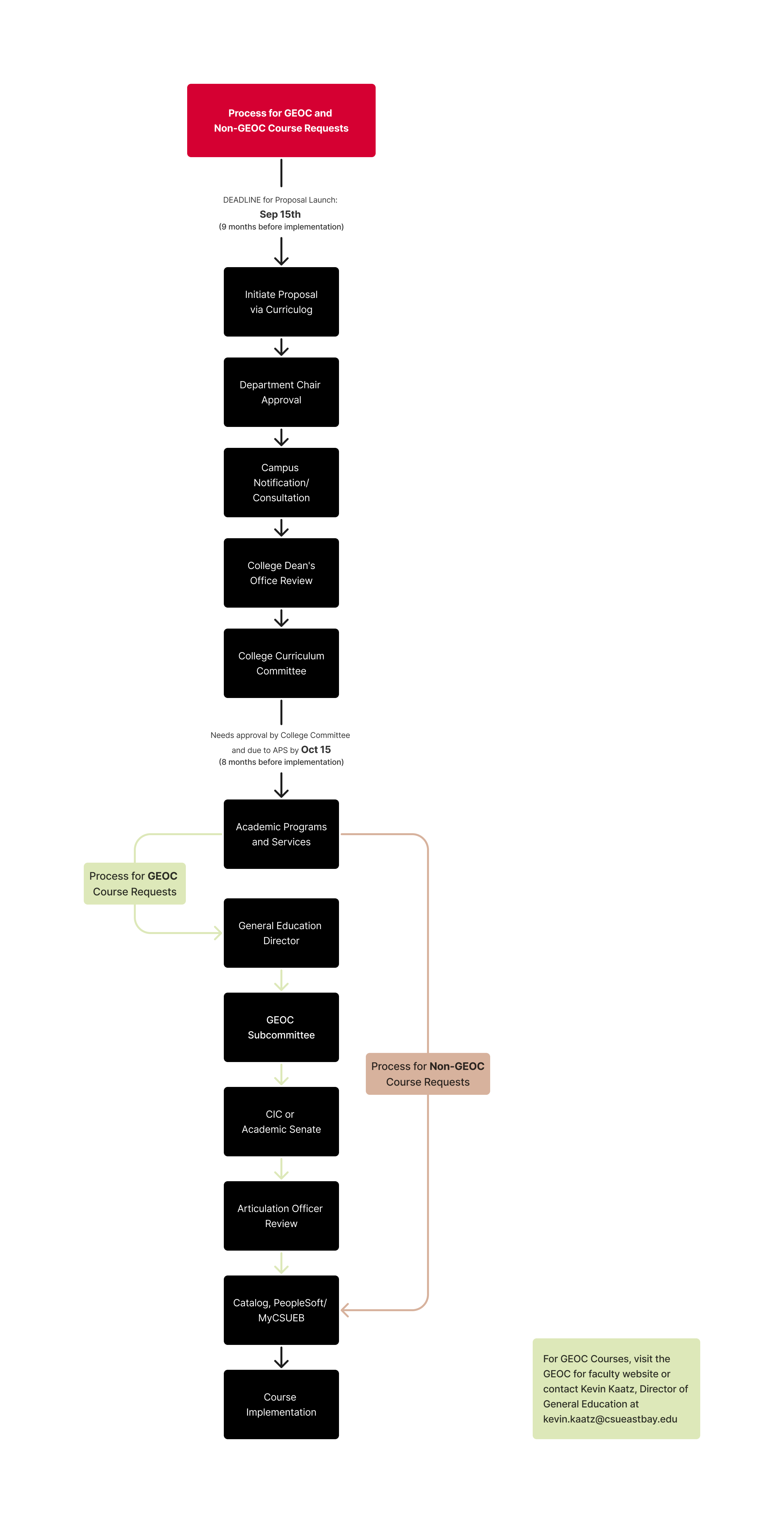New Course Request
Types of Courses
New Course Request Process
With permission from you department chair, you may propose a new course in your department. To initiate the approval process, you must complete a New Course Request by following the procedure below:
- Log into Curriculog
- Select the New Proposal Link

- Select the "Courses" tab
- Select the Type of Course you wish to add. It should say "New" in the title.
- If desired, select the "Preview Form" icon
to preview form
- To proceed, select the "Start Proposal" icon
 to begin your proposal
to begin your proposal
After Faculty Member and/or Department Chair originates proposal in Curriculog, proposal then moves through the approval process as follows:
- Department Chair (if not the originator)
- Consultation (Newly approved curriculum reviewed by all Department Chairs and Associate Deans. Colleges/Departments have five working days to review proposals and submit any comments within Curriculog.)
- Dean and/or Associate Dean
- College Curriculum Committee (proposal may require additional Dean/Associate Dean review if significant changes are made at this step)
- Academic Programs and Services (Technical and Articulation Officer Review, and Director, Associate Dean or Dean approval depending on proposal). If no consultation is requested, proposal proceeds as follows:
- General Education Subcommittee of CIC, if proposal is for General Education, Graduation Requirement, and/or Writing Skills credit
- Writing Skills Subcommittee of CIC, if proposal is for Writing Skills credit
- Committee on Academic Planning and Resources (CAPR), if additional resources are involved
- Committee on Instruction and Curriculum (CIC), if course meets any stipulations in 5a – 5c
- Executive Committee of the Academic Senate (ExCom), as information only, if course meets any stipulations in 5a – 5c
- Academic Senate, as information only, if course meets any stipulations in 5a – 5c
- University President, as information only, if course meets any stipulations in 5a – 5c
- University Curriculum Coordinator facilitates the completion of the proposal and addition into the catalog
Semester Catalog Curriculum Deadlines
Academic Programs and Services deadlines are outlined in the Master Curriculum Calendar. However, college deadlines are set earlier, so please check with your College Curriculum Coordinator for college-specific curriculum submission deadlines.
New courses may be added to the Class Schedule in any of our two semesters or summer term, as long as the submission deadline dates are followed. These submission deadlines may be obtained from your College Curriculum Coordinator. New Courses are added to the next available University Catalog (changes may not be made to the published catalog).
